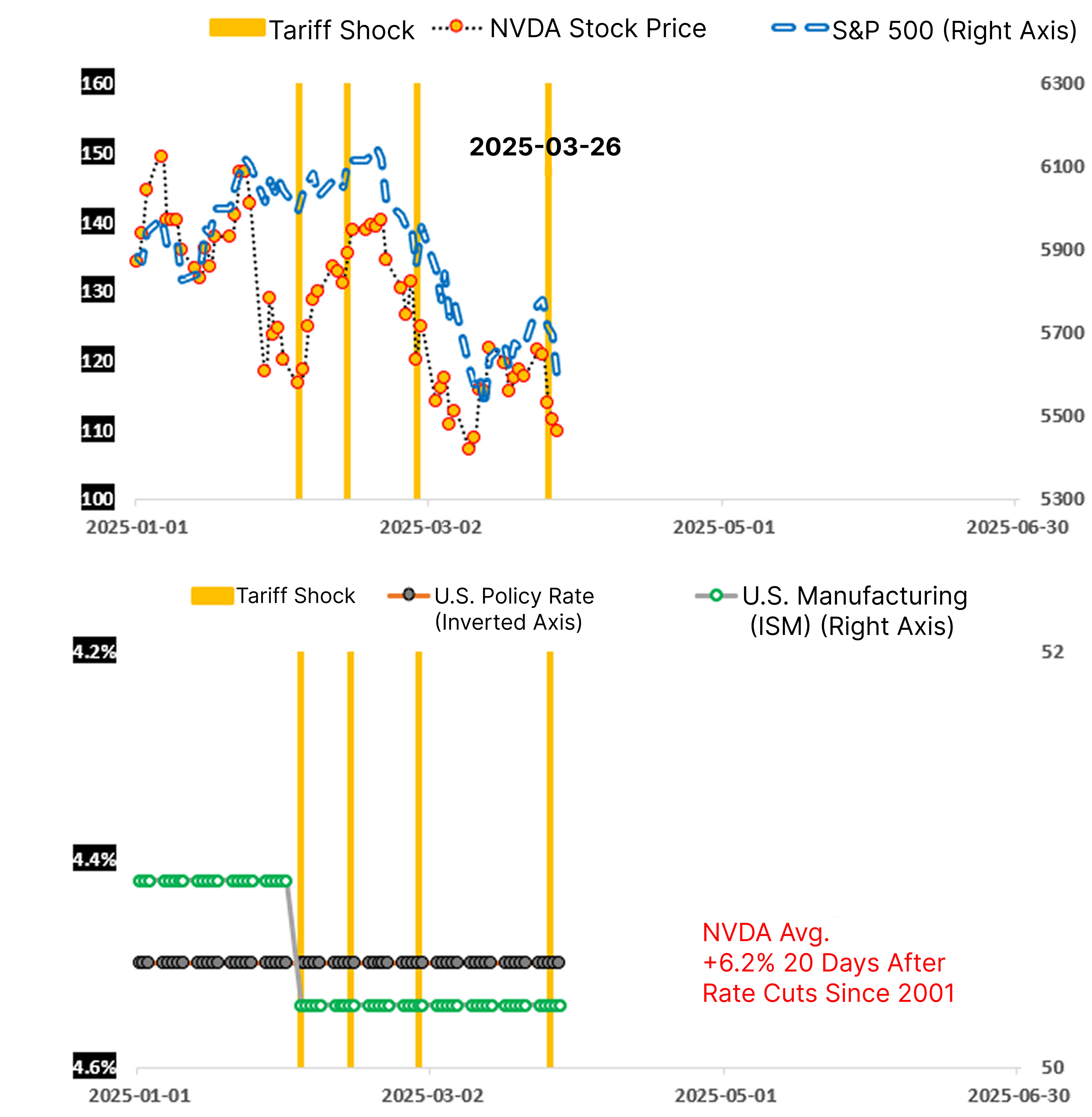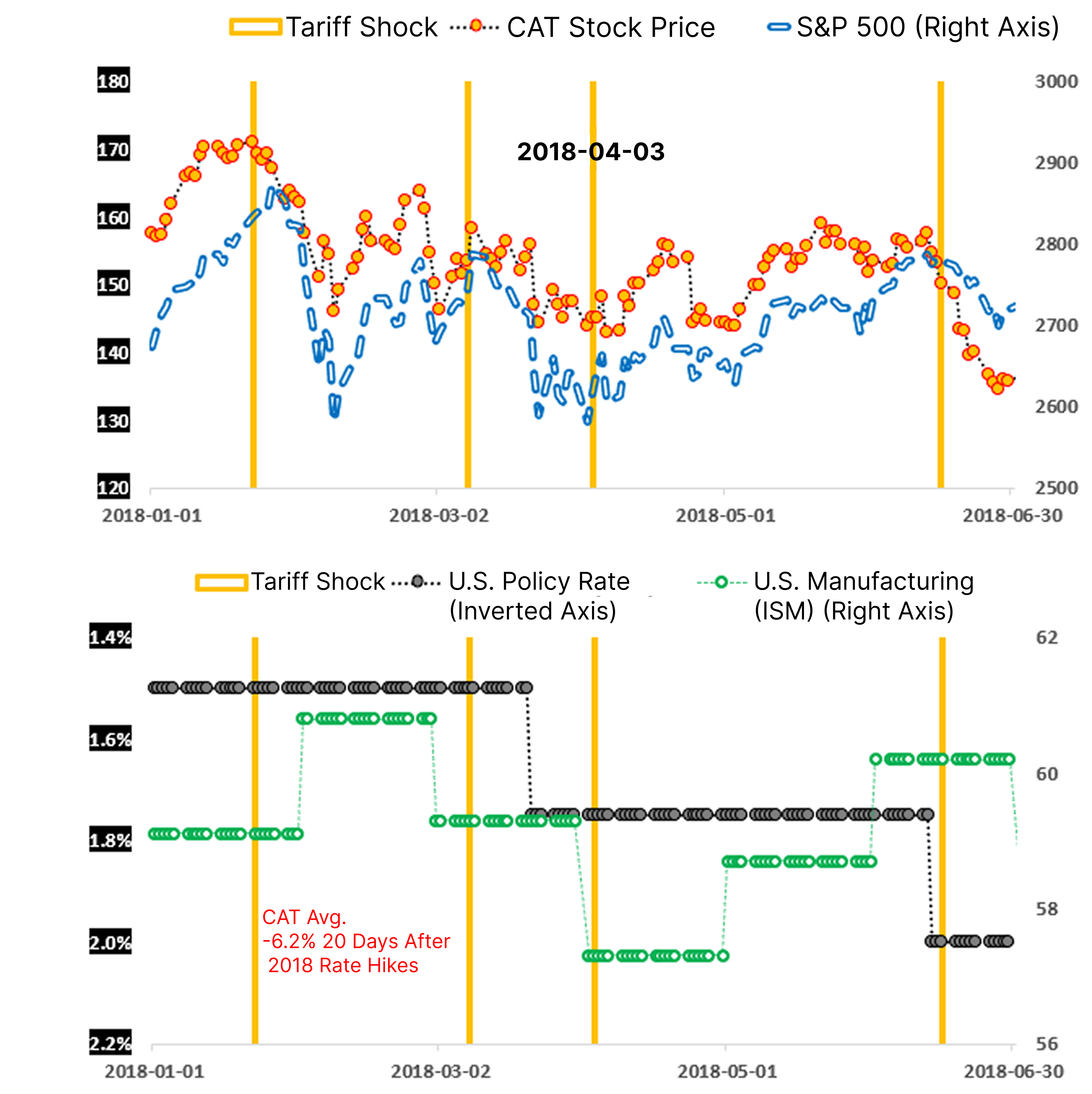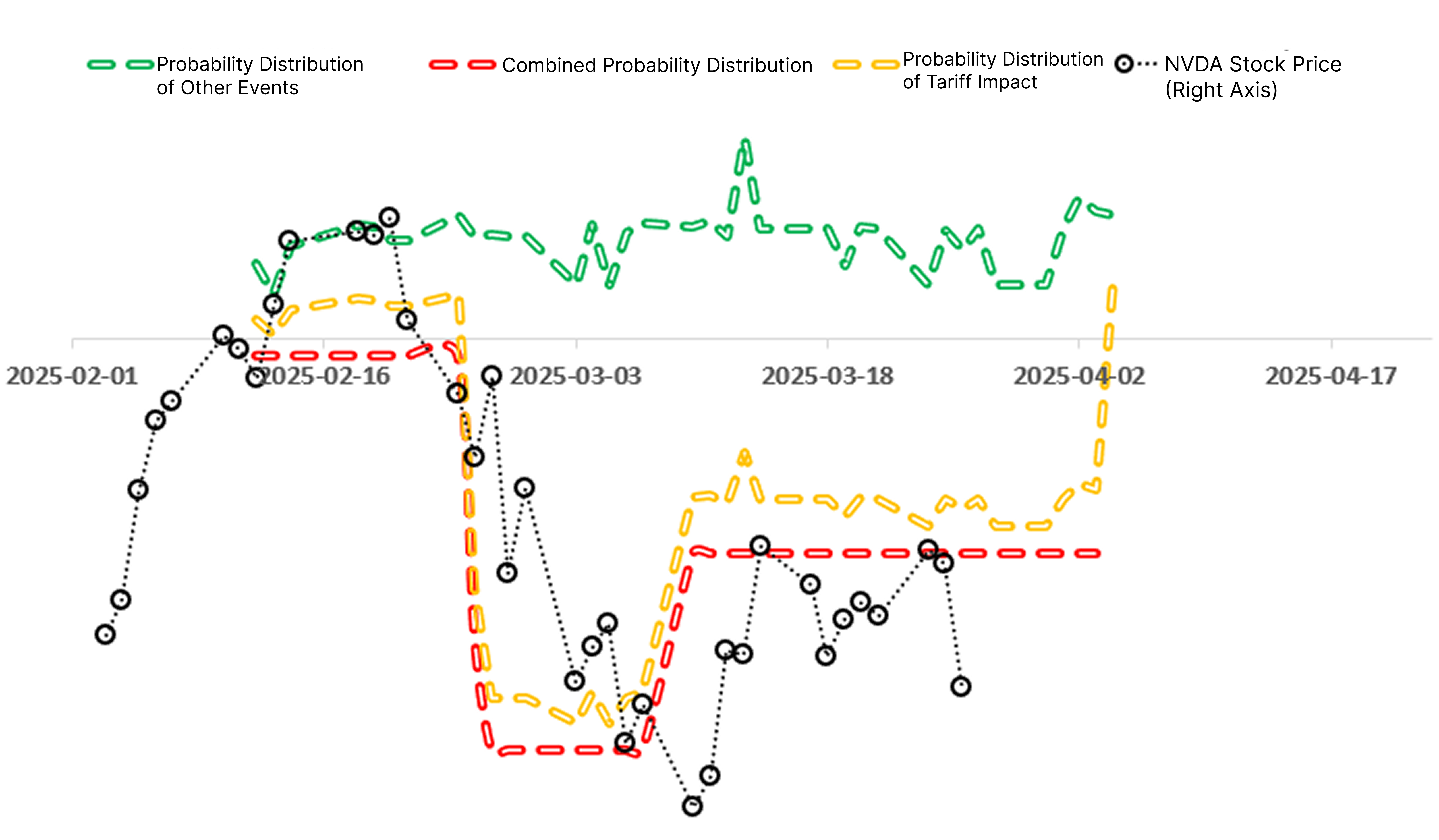
Trump’s Tariff Shock: Who's Paying the Price?
created At: 4/1/2025
Neutral
This analysis was written from a neutral perspective. We advise you to always make careful and well-informed investment decisions.
124
0
0
Fact
NVDA's 20-day average return post rate cuts since 2001 is +6.2%, yet the stock has recently declined.
CAT’s 20-day average return post 2018 rate hikes was -6.2%.
Trump’s tariff announcements consistently coincided with sharp sell-offs in NVDA and CAT.
Opinion
Unlike CAT, which faces mixed pressures, NVDA's weakness is strongly linked to tariff fears—highlighting that Trump's trade policy is directly weighing on big tech stocks.
Core Sell Point
NVDA’s recent decline, despite favorable monetary conditions, is a clear signal that tariffs are a material negative catalyst for its stock.
124
0
0
Comments
0
Please leave a comment first


